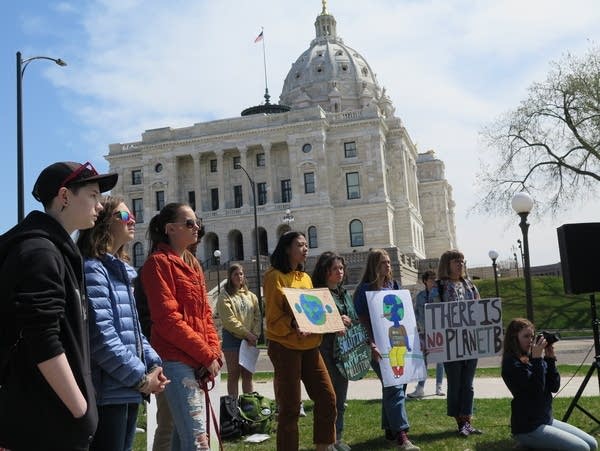Minnesota teens urge climate action at Legislature

Teens attending the Youth Climate Strike rally hold signs as they listen to speakers outside the State Capitol on Friday.
Elizabeth Dunbar | MPR News
Go Deeper.
Create an account or log in to save stories.
Like this?
Thanks for liking this story! We have added it to a list of your favorite stories.


